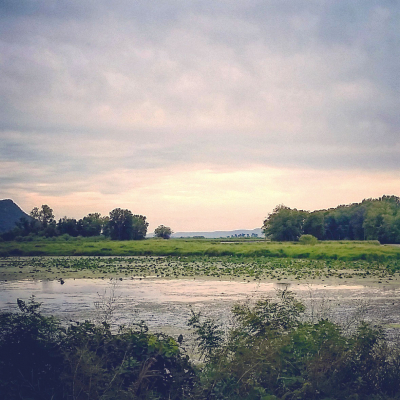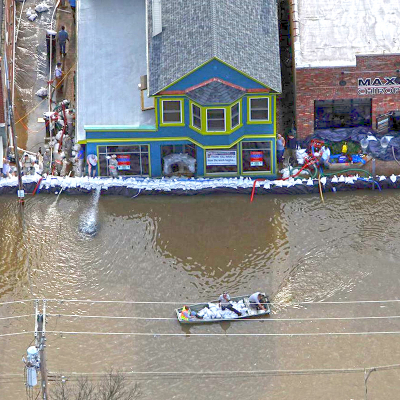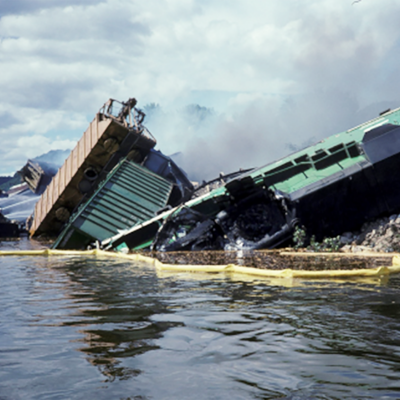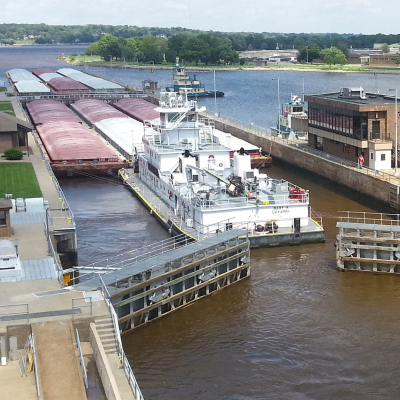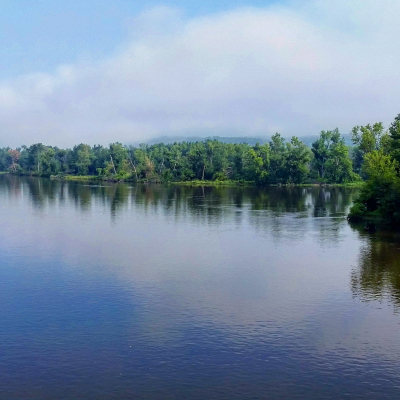UMRBA News
UMRBA Supports Gulf Hypoxia Program, Joins 63 Organizations in Requesting FY 2027 Appropriations
UMRBA joined 63 organizations, representing agricultural, navigation, and conservation organizations, across the Mississippi River Basin, in a letter to Congress requesting FY 2027 funding for the Gulf Hypoxia Program.
With funding through the U.S. Environmental Protection Agency, the Gulf Hypoxia Program supports collaborations among state governments, tribal governments, and agricultural, municipal, conservation, and other stakeholders in their collective, voluntary efforts to reduce nutrient runoff from nonpoint sources in ways that also have many supplemental national benefits such as waterways transportation reliability, water storage, and habitat.
UMRBA's funding requests letters submitted to the House and Senate Appropriations Committees are found on UMRBA's website by clicking here.
UMRBA Partners in Connecting Tributary Flows to Upper Mississippi River 9-Foot Navigation Channel
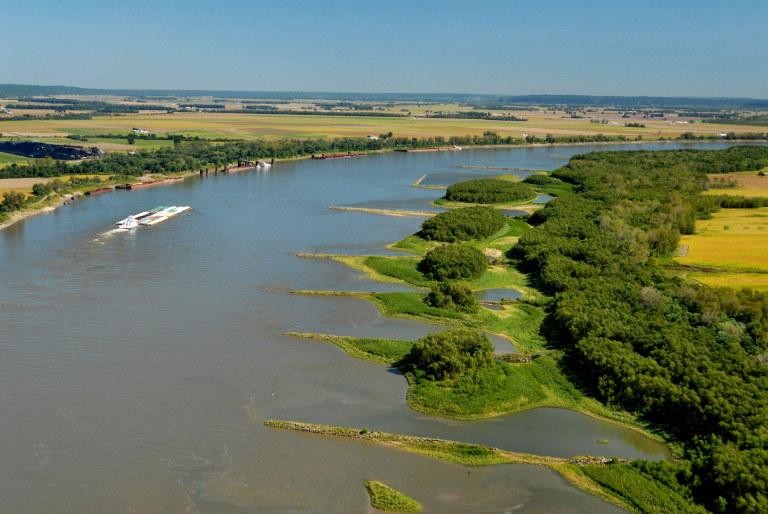
USACE St. Louis District Wing Dams
USACE St. Louis District
The Upper Mississippi River Basin Association (UMRBA) and several partner organizations are launching a project that will identify which basin watersheds have greater impacts on river flows that support the nine-foot navigation channel essential to commercial barge traffic on the river.
U.S. Geological Survey is providing $600,000 to support the project. The University of Minnesota will conduct the hydrologic analysis. UMRBA will facilitate interstate coordination. The states of Illinois, Iowa, Minnesota, Missouri, and Wisconsin will provide technical expertise to the University of Minnesota. U.S. Geological Survey will also provide technical expertise to the states and the University of Minnesota, as they explore how the information can be used to support decision making.
UMRBA Welcomes New Staff Team Members
The Upper Mississippi River Basin Association is pleased to announce the expansion of our staff team with the addition of Henry Hansen, Sadie Neuman, Laura Talbert, and Josh Wolf. We are eager to introduce you to Henry, Sadie, Laura, and Josh and to build our relationships with you in familiar and new ways. Please join us in welcoming Henry, Sadie, Laura, and Josh to our team!
Henry H. Hansen serves our team as the Ecosystem Program Lead. Henry fosters systemic and multi-disciplinary ecosystem health and resilience investments, integrates ecological sustainability into other river management priorities (e.g., floodplain management), and develops policy and communications related to ecosystem science and management.
Sadie Neuman, MPA-MSES supports our team as the Public Participation and Communications Project Specialist. Sadie facilitates interactive planning processes, develops and implements UMRBA's communications plans, and improves accessibility to UMRBA’s program activities.
Laura Talbert supports our team as the Ecosystem Program Coordinator. Laura facilitates and convenes planning forums, fosters the participation of nongovernmental entities and potentially affected interests, and drafts and coordinates multi-organization communications.
Josh Wolf assists our team as the Water Quality Program Coordinator. Josh facilitates and convenes planning forums, employs strategic planning, and drafts and coordinates multi-organization communications.
We invite you to learn about the roles and responsibilities of our entire staff team by reviewing our staff web page: https://umrba.org/staff.
UMRBA Offers WRDA 2024 Conference Letter
UMRBA offers to Congress its priorities for the Water Resources Development Act (WRDA) of 2024 as the House and Senate reconcile their versions, H.R. 8812 and S. 4367 respectively. UMRBA believes that WRDA 2024 offer important opportunities to advance the principles of sustainability and multi-use management of the nation’s water resources and to support cooperation among the federal government agencies, states governments, and non-governmental interests.
Find the comment letter on UMRBA's webpage by clicking here.
UMRBA Seeks Water Quality Program Coordinator
The Upper Mississippi River Basin Association (UMRBA) is seeking applications for a new position titled Water Quality Program Coordinator.
This position will primarily focus on the states’ collective efforts to accelerate reduction of nonpoint source pollutants to waters within the Upper Mississippi River basin, specifically the nonpoint sources of nutrients, chloride, and harmful algal blooms. This work involves coordinating the collaboration of the UMRBA Nutrient Committee and the Hypoxia Task Force Upper Mississippi River Sub-basin Committee.
Applications are due August 22, 2024 to umrba@umrba.org. Applications must include a cover letter, resume, and brief writing sample.
The position description and hiring instructions are available at this link: https://umrba.org/document/umrba-water-quality-program-coordinator-hiring-announcement.
Please direct any questions to UMRBA staff at umrba@umrba.org.
UMRBA Welcomes Laura Talbert as Ecosystem Program Coordinator
The Upper Mississippi River Basin Association is pleased to announce that Laura Talbert has started as Ecosystem Program Coordinator. In this capacity, Laura supports interagency and interdisciplinary cooperative planning and action for the purposes of improving and sustaining the Upper Mississippi River’s ecological resources.
Laura’s previous experience includes community engagement and natural resources planning and program management. Laura holds a Master of Arts in Governance, Development and Public Policy and a Master of Science in Conservation and Rural Development.
Laura enjoys travelling off the beaten path, reading in her hammock, and eating as much sugar as possible. After living in ten different countries, she is thrilled to make Minnesota her home.
Please join us in welcoming Laura! Her contact information is ltalbert@umrba.org or 763-349-2469.
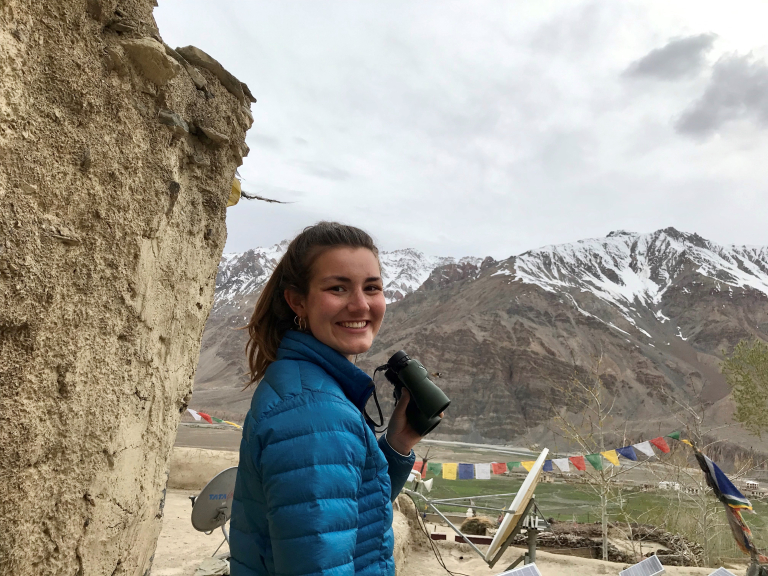
Laura Talbert Photograph
Laura Talbert
UMRBA Seeks Ecosystem Program Coordinator
The Upper Mississippi River Basin Association (UMRBA) is seeking applications for a new position titled Ecosystem Program Coordinator.
This position will primarily focus on implementing UMRBA’s roles and responsibilities as a partner organization within the Upper Mississippi River Restoration Program, which is a science and monitoring program that is implemented through a federal-state partnership. In addition, the Ecosystem Program Coordinator will support UMRBA’s participation in the Navigation and Ecosystem Sustainability Program and UMRBA’s efforts to integrate ecological resilience into the multi-purpose management of the Upper Mississippi River System.
Applications are due May 22, 2024 to umrba@umrba.org. Applications must include a cover letter, resume, and brief writing sample.
The position description and hiring instructions are available at this link: https://umrba.org/document/umrba-ecosystem-program-coordinator-hiring-announcement.
Please direct any questions to UMRBA staff at umrba@umrba.org.
For more information on UMRBA, please visit our website at http://umrba.org.
UMRBA Convenes Nutrient Reduction Leaders
The Upper Mississippi River Basin Association (UMRBA) hosted a “Multi-Benefit Conservation Practice Workshop” on October 3-4, 2023 in downtown St. Paul. 58 participants attended, representing a variety of organizations and sectors: government (local, state, federal), private, agricultural, industry, universities, and nonprofits.
The purpose of the October workshop was to explore leverage points of change that could increase implementation of multi-benefit conservation practices. A preceding UMRBA-hosted workshop, held in St. Louis in November 2022, explored how organizations can accelerate the implementation of multi-benefit conservation practices that address nutrient reduction in the Upper Mississippi River Basin.
UMRBA offers the following conclusions reflecting on the two-part workshop series on multi-benefit conservation practices:
- The acceleration of adopting multi-benefit conservation practices is important in the Upper Mississippi River basin to ensure farmland is healthy for continued production of crops and to protect and build resilience in those lands.
- UMRBA’s two-part workshop series focused on how to increase the adoption of multi-benefit conservation practices series. The two workshops drew a wide range of people working in agriculture-related areas from a variety of educational backgrounds and organizations/agencies. The cross collaboration of public and private sector groups and the structure of the workshops allowed for thoughtful and innovative idea sharing.
- The first workshop was designed to balance information sharing and breakout group discussions around three topic areas: research, communication, and financial. The conversations highlighted the importance of multiple disciplines and multiple layers of organizations and agencies being involved to reduce nutrient loading in the Upper Mississippi River basin.
- The systems map utilized in the second workshop helped workshop participants understand how to map and identify leverage points. The systems map can be applied to various levels of an organization’s or agency’s work. UMRBA encourages referencing the systems map linked here: https://umrba.org/sites/default/files/documents/workshop-systems-map.pdf.
- Many presenters in the second workshop emphasized the power of peer-to-peer communication, education, and leadership as leverage points for increasing multi-benefit conservation practice adoption by commodity and specialty crop producers. This was especially true for women, tribal, and BIPOC farmers. The power of peer-to-peer communications reinforces the insight that messages and messengers geared to specific and different audiences are keys to unlocking and leveraging positive change.
- UMRBA will continue to work on behalf of its five member states to increase the collaboration and sharing of resources supporting nutrient reduction strategies. The UMRBA will be organizing and coordinating the Upper Mississippi River Sub-basin Committee to the Hypoxia Task Force, and this committee will focus on interstate collaboration with respect to the basin states’ nutrient management strategies.
The workshop summaries and materials can be found via the following link: https://umrba.org/document/multi-benefit-workshops
The workshop series was funded through a cooperative agreement with the USEPA Office of Water.
UMRBA staff contact: Lauren Salvato (lsalvato@umrba.org)
UMRBA Conveys FY 2025 Energy and Water Appropriations Priorities
Note: This news story was updated on May 6, 2024 with an update to UMRBA's request for the Navigation and Ecosystem Sustainability Program. The funding request was initial $50 million, and was updated to $187 million in light of the U.S. Army Corps of Engineers' expressed capability estimates submitted to Congress.
Building upon the Upper Mississippi River’s deeply rooted partnership and successes in effective multi-purpose management, UMRBA’s FY 2025 funding priorities include:
- $187 million for the Navigation and Ecosystem Sustainability Program (NESP)
In FY 2025, the Corps is estimating the NESP FY 2025 navigation capability at $65 million and the NESP FY 2025 ecosystem capability at $125 million. The navigation-related investments involve systemic mitigation, switchboats, planning at L&D 24, and other programmatic activities.
- $55 million for the Upper Mississippi River Restoration (UMRR) Program
In FY 2025, UMRR will implement 27 habitat projects across five states and three Corps Districts. Of these 27 projects, UMRR will be actively constructing 10 projects and advance planning and design on 16 habitat projects. These projects integrate a broad range of restoration techniques that strive to use or mimic the river’s natural processes to enhance and protect important fish and wildlife habitat, restore the river’s floodplain structure and function, and counteract the factors degrading the river’s ecological health. UMRR will continue its long term resource monitoring and research, providing a much clearer understanding of the complex, dynamic relationships among various ecosystem components and watershed drivers.
- $1.835 million for renewed flow frequency probabilities and water surface profiles for the Upper Mississippi and Illinois Rivers
In FY 2025, the U.S. Army Corps of Engineers will compete the hydraulic routing model and associated flow and climate assessments, employ the analyses, and develop a report of the findings. Flood risk assessments and forecasting capabilities are necessary to reduce damages and loss of life associated with increasingly frequent and major flood events in the Upper Mississippi River. Accurate and accessible information will improve our ability to develop a systemic flood plan and improve management capabilities.
- Full utilization of the Inland Waterways Trust Fund to support inland navigation new construction and major rehabilitation projects
- Full capability for operations and maintenance of the Upper Mississippi River System 9-foot navigation channel
UMRBA's funding requests letters submitted to the House and Senate Appropriations Committees are found on UMRBA's website by clicking here.
UMRBA Assesses Water Quality Trends Spanning 30 Years
UMRBA published its second assessment of water quality on the Upper Mississippi River System, the “How Clean is the River?” report, which presents trends between 1989 and 2018.
This new report underscores the value of coordinated and comprehensive water quality monitoring and management on the Upper Mississippi River System, while revealing where future work is needed.
The first assessment was published in 1981 and led UMRBA’s water quality program to focus on heavy metals and sediment, two major contaminants of concern at the time. This second assessment shows significant improvements in water quality conditions since then in large part due to legislation and policy that addressed point source and nonpoint source pollution. It supports UMRBA’s current interstate focus on nutrients, chloride, and emerging contaminants.
This new report reflects the interstate water quality management framework established by UMRBA through its member states – Illinois, Iowa, Minnesota, Missouri, and Wisconsin – to improve water quality through identifying problem areas, targeting management actions, and measuring progress in protecting water quality. In the analysis, UMRBA recognizes that important data gaps continue to reduce our ability to effectively identify problems and target management actions to protect water quality.
UMRBA encourages state and local governments and other partners to support its Interstate Water Quality Monitoring Program, which would provide consistent and uniform data collection on the Upper Mississippi River. Learn more about the Interstate Monitoring Program by clicking here to review the program purpose, goals, completed pilots, and various reference documents.
We invite you to explore the report’s analysis of all 19 parameters, including maps of trend information, by clicking here to view the report.
Notable Trends and Important Information Gaps
| Positive Trends | Negative Trends | Data Gaps | ||
|
|
|
||
|
|
|
||
|
|
|
||
|
|
|||
|
UMRBA Offers Comments Regarding Upper Mississippi River Levee and Floodwall Design Standards Bill (H.R. 5722)
The Upper Mississippi River Basin Association (UMRBA) strongly supports efforts to improve the ability of people and organizations to prepare for, respond to, and recover from major floods events. This involves improving and better utilizing information to understand their respective risk of being impacted from flooding on the Upper Mississippi River System and to assess their vulnerabilities.
UMRBA applauds the leadership of Representative Mary Miller and other members of Congress in improving flood protection on the Upper Mississippi River System. As such, the states support the basic purpose and objectives of the Upper Mississippi River Levee and Floodwall Design Standards bill (H.R. 5722), including by more frequently renewing surface water profiles and flood frequency probabilities.
UMRBA acknowledges the increasing likelihood that high intensity floods will be experienced on the Upper Mississippi River System and that people, economies, and ecosystems will be impacted. Levee systems authorized fifty or more years ago likely do not offer the same levels of protection as we understood them to have then.
In the spirit of continued cooperation with Congress, our federal agency partners, affected interests, UMRBA submitted to Congress the following comments regarding H.R. 5722:
- UMRBA acknowledges the importance of more frequently renewing surface water profiles and flood frequency probabilities to inform risk assessments and systemic and localized planning.
- UMRBA supports efforts to improve flood protection in certain places given current understandings of flood frequency probabilities and associated impacts.
- UMRBA’s interpretation of the bill is that levees would be automatically allowed to adjust levee protection without mitigation for impacts onto others. However, UMRBA recognizes that any adjustments to levee heights and placement must abide by applicable state and federal law. That involves evaluating, acknowledging, and mitigating for any resulting impacts to other areas of the river floodplain.
- UMRBA respectfully requests that the bill include language acknowledging that modifications to levee heights and placement must abide by applicable state and federal law.
Relatedly, UMRBA is seeking a federal authorization in the Water Resources Development Act of 2024 to develop long term, integrated approaches to improving flood conveyance and storage in the Upper Mississippi River System floodplain, systemically and locally. We intend for the process to facilitate a collaborative approach to evaluating of an extensive array of structural and nonstructural measures that would collectively improve flood conveyance and storage.
Find the comment letter on UMRBA's website by clicking here.
UMRBA Expands the Navigation Assets Inventory to the Missouri River
The Upper Mississippi River Basin Association (UMRBA) is expanding on a regional effort to improve freight mobility through innovative, strategic approaches as well as to promote the inland waterways to improve the nation’s overall transportation system.
The Upper Mississippi River System and the Missouri River are vital transportation corridors, connecting the Midwest to the world economy. “Use of the Upper Mississippi and Missouri Rivers for freight supports and improves the flexibility of the entire U.S transportation system, and increases our economic competitiveness in a global marketplace,” says Iowa DOT Director Scott Marler.
“Through UMRBA, the states DOTs work collaboratively to achieve full integration of the inland waterways into the nation’s surface transportation system, ensuring that reliable, regularly scheduled, competitive, sustainable services are routine choices for shippers in the Midwest,” says Missouri DOT Director Patrick McKenna.
The Navigation Assets Inventory, launched in 2021, is an interactive map that features ports, terminals, boat accesses, and other navigation-related information on Marine Highways 35 and 55, allowing users to search for intermodal access with a certain dock type or storage capacity. The expansion of the Navigation Assets Inventory includes an additional 734 miles of navigable river from Sioux City to St. Louis, including 2 ports, over 50 terminals, and 14 live National Weather Service and U.S. Geological Survey stream gages.
The expanded Navigation Assets Inventory now includes Marine Highways 35, 55, 29, and 70, creating new opportunities for ports, terminals, and operators to access federal funding, technical support, and other resources to expand or develop new shipping services and make the Missouri and Upper Mississippi Rivers a more cost-effective and self-sustaining transportation route.
UMRBA hosts the Navigation Assets Inventory as part of its efforts to facilitate interstate coordination and leadership on behalf of the five Upper Mississippi River states – Illinois, Iowa, Minnesota, Missouri, and Wisconsin. UMRBA continues to work to strengthen the Upper Mississippi River transportation mobility and utilization, and to ensure multi-use management of the Upper Mississippi River System.
The recently expanded Navigation Assets Inventory is available here: https://umrba.org/navigation-assets-inventory.
UMRBA Submits WRDA 2024 Priorities to Congress
UMRBA submits to Congress its priorities for the 2024 Water Resources Development Act.
In particular, UMRBA calls for Congress to:
- Create a more equitable and reasonable approach to USACE non-federal cost-share project partnership agreements
- Direct USACE to follow state law for implementing water resource projects (i.e., apply for state permits)
- Authorize a study to develop long term, integrated approaches to improving flood conveyance and storage in the Upper Mississippi River System floodplain, systemically and locally
- Modify the Upper Mississippi River Restoration (UMRR) program's authority to:
- Increase the annual authorized appropriation of UMRR’s long term resource monitoring to $25 million
- Allow for financial support to UMRBA and the states of Illinois, Iowa, Minnesota, Missouri, and Wisconsin to directly participate in the program, expanding the capacity for cooperative planning and technical expertise
- Allow for memorandums of agreement (MOAs) to govern partnership agreements with states for projects located on General Plan lands (as opposed to project partnership agreements)
- Authorize full federal funding for the remaining costs for all inland waterways construction and major rehabilitation projects funded by the Infrastructure Investment and Jobs Act (IIJA) - e.g., construction of the second, 1,200-foot chamber at L&D 25
Find the letter on UMRBA's website by clicking here.
UMRBA Reports on FY 2023 Accomplishments
UMRBA is pleased to share a summary of the Association's accomplishments in its 2023 fiscal year. This “year-in-review” highlights some of the progress made in 2023 (fiscal year) and presents a look forward to the work in the year ahead.
The UMRBA Board applauds state agency staff, our federal partners, individual and organizational stakeholders, and the Association's staff for all their collective, collaborative work for the benefit of the Upper Mississippi River.
Notable events and new collaborations in fiscal year 2023 are that:
- UMRBA hosted the first of two workshops for the purposes of finding the most impactful ways to accelerate the use of multi-benefit conservation practices on agricultural lands. These workshops are funded through U.S. Environmental Protection Agency’s Office of Water.
- UMRBA met with the Regional Administrators from USEPA Regions 5 and 7, aligning shared priorities related to the UMRBA Interstate Water Quality Monitoring Program, basin-wide nutrient management, environmental justice, climate resilience, lead and cooper rule, and national primary drinking water regulations for PFAS.
- UMRBA, in partnership with the National Oceanic and Atmospheric Administration (NOAA) and the Institute on the Environment at the University of Minnesota (IonE), launched a new project to enhance climate resilience along the Upper Mississippi River from Minnesota to Missouri. This includes basin-wide downscale climate modeling and exploring how to make resilience planning efforts at local, regional, and systemic scales more accessible and inclusive for the diverse people and communities of the Upper Mississippi River.
- The UMRBA Spills Group renewed the UMR Spills Response Plan and Resource Manual, which is a unique, river-focused tool and information source for first responders and contingency planners.
- UMRBA developed a scope for, and initiated the development of, a water availability cumulative impacts assessment. As a first step, UMRBA’s member states are aligning their consumptive use data and developing consumptive use coefficients.
- UMRBA supported through advocacy and other means, and participated in interagency programmatic efforts for, the Upper Mississippi River Restoration (UMRR) program and the Navigation and Ecosystem Sustainability Program (NESP).
Find the FY 2023 Accomplishments Report on UMRBA's website by clicking here.
UMRBA Suggests Improvements to NRCS Healthy Watersheds Initiative (MRBI) and National Water Quality Initiative (NWQI)
The UMRBA Water Quality Executive Committee provides suggestions to the USDA Natural Resource Conservation Service (NRCS) for improving NRCS's Mississippi River Basin Healthy Watersheds Initiative (MRBI) and the National Water Quality Initiative (NWQI). These comments were provided in response to NRCS's request for comments.
In particular, the letter calls for improving connection to state and local watershed plans, efficiency in applications, and planning assistance.
Find the letter on UMRBA's website by clicking here.
UMRBA Conveys FY 2024 Appropriations Priorities
Building upon the Upper Mississippi River’s deeply rooted partnership and successes in effective multi-purpose management, UMRBA’s FY 2024 funding priorities include:
- $120 million for the Navigation and Ecosystem Sustainability Program (NESP)
In 2024, NESP will initiate construction of a second 1,200-foot lock chamber at La Grange L&D, construct mooring cells on the Mississippi River to improve navigation efficiency and fish passage at L&D 22, and advance planning and design on six to ten ecosystem restoration projects. In addition, NESP will advance strategic planning and adaptive management of its ecosystem restoration program.
- $55 million for the Upper Mississippi River Restoration (UMRR) Program
In FY 2024, UMRR will construct 9 habitat projects and advance planning and design on 14 to 16 habitat projects. These projects integrate a broad range of restoration techniques that strive to use or mimic the river’s natural processes to enhance and protect important fish and wildlife habitat, restore the river’s floodplain structure and function, and counteract the factors degrading the river’s ecological health. UMRR will continue its long term resource monitoring and research, providing a much clearer understanding of the complex, dynamic relationships among various ecosystem components and watershed drivers.
- $1.2 million for renewed flow frequency probabilities and water surface profiles for the Upper Mississippi and Illinois Rivers
In FY 2024, the U.S. Army Corps of Engineers will compete the hydraulic routing model and associated flow and climate assessments. Flood risk assessments and forecasting capabilities will help to reduce damages and loss of life associated with increasingly frequent and extreme flood events in the Upper Mississippi River. Accurate and accessible information will improve our ability to develop a systemic flood plan and improve management capabilities.
- Full capability for operations and maintenance of the Upper Mississippi River System 9-foot navigation channel
- $25 million for the Gulf Hypoxia Program
In FY 2024, the funding request would support the implementation of state nutrient reduction strategies and modeling tools to understand the cumulative effects of these strategies on mitigating hypoxia.
UMRBA's funding requests letters submitted to the House and Senate Appropriations Committees are found on UMRBA's website by clicking here.
UMRBA Launching a New Project: Building Knowledge to Support Climate Resilience
UMRBA and two other organizations, the National Oceanic and Atmospheric Administration (NOAA) and the Institute on the Environment at the University of Minnesota (IonE), are launching a new project this fall to explore how to enhance climate resilience in communities along the Upper Mississippi River from Minnesota to Missouri.
“The project is an excellent example of expanding the partnership among local, state and federal agencies to reduce risk and enhance resilience in communities within the Upper Mississippi River Basin,” said UMRBA Executive Director Kirsten Wallace. “We are particularly focused on engaging with communities that have not previously had the resources and capacity to enhance their own resilience to floods and droughts.”
This new project defines “climate resilience” as the ability for communities in the river basin to anticipate, prepare, and recover from extreme weather events, such as floods and droughts. Not all communities in the basin have the same capacities and resources to anticipate and prepare for these events. The project will identify less-resourced vulnerable communities and focus on ways to enhance their climate resilience.
NOAA and IOE scientists will be translating the most current climate models into predictions about river flows (floods and droughts) that vulnerable communities can use to anticipate and reduce their risk. The project will identify how the partnership can reach out to vulnerable communities, build their knowledge, and support them as they increase their climate resilience.
The project was developed in response to feedback received during a NOAA-hosted 2021 Climate and Equity Roundtable focused on flooding and resilience in the Mississippi River Basin. This was one of eight roundtables hosted by NOAA across the country to better understand the issues vulnerable communities face regarding climate change. NOAA is providing project funding that will flow through the Cooperative Institute for Research to Operations in Hydrology (CIROH) and will be administered by IOE.
NOAA press release about the project: https://www.noaa.gov/news-release/pilot-project-to-support-equitable-climate-resilience-along-upper-mississippi-river.
Contact: Kirsten Wallace, UMRBA Executive Director (kwallace@umrba.org)
UMRBA Submits WRDA 2022 Priorities
UMRBA submits to Congress its priorities for the 2022 Water Resources Development Act.
In particular, UMRBA calls for Congress to:
- Reform of the Corps' project partnership agreements
- Increase the Upper Mississippi River Restoration program's annual authorized appropriation
- Utilize the Corps' existing authorities to implement water level management on the Upper Mississippi River System
- Authorize a routine hydraulic evaluation of flow frequency probabilities and water surface profiles on the Upper Mississippi River System
- Permanently adjust the cost share of inland waterway construction and major rehabilitation projects to 25 percent from the Inland Waterway Trust Fund and 75 percent from the general Treasury
Find the letter on UMRBA's website by clicking here.
UMRBA Welcomes Erin Spry as Project Specialist
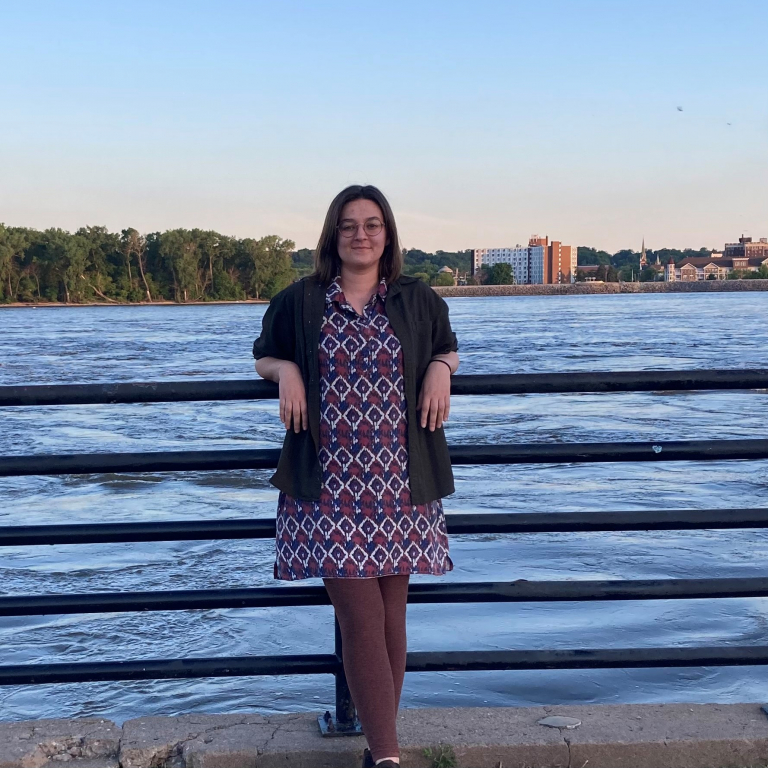
Erin Spry joined UMRBA as a Project Specialist in 2022. In this role, Erin will assist in implementing UMRBA project-specific priorities such as research, communications, and developing opportunities and means for interagency collaboration and coordination. Erin's area of work will primarily focus on water quality and quantity as well as ecosystem health.
Erin’s previous experience includes serving as a hydrologist for Minnesota Departments of Natural Resources and Agriculture and as a wildlife technician for the Minnesota Department of Natural Resources. Erin holds a Bachelors in Geology from University of Minnesota.
Erin enjoys gardening, playing music, and sewing. She spends a lot of her time hiking, camping, and kayaking with her partner. Erin has three cats and four chickens and hopes to one day turn her city chickens (and city life) into farm chickens.
UMRBA Joins Hypoxia Task Force Funding Announcement
UMRBA joined the joint announcement of the U.S. Environmental Protection Agency and the Iowa Department of Agriculture and Land Stewardship for their historic announcement of $60 million in federal funding for nutrient reduction in the Mississippi River Basin. UMRBA looks forward to the partnerships, collaboration, innovation, and improvements in water quality through the Hypoxia Task Force.
The USEPA press release detailing the announcement is available by clicking here.
UMRBA is the leading interstate, regional collaborative to assist Illinois, Iowa, Minnesota, Missouri, and Wisconsin in implementing the Clean Water Act and nutrient reduction strategies. In this capacity, UMRBA serves as the Hypoxia Task Force Upper Mississippi River Sub Basin Committee.
UMRBA Welcomes Natalie Lenzen as Operations Manager
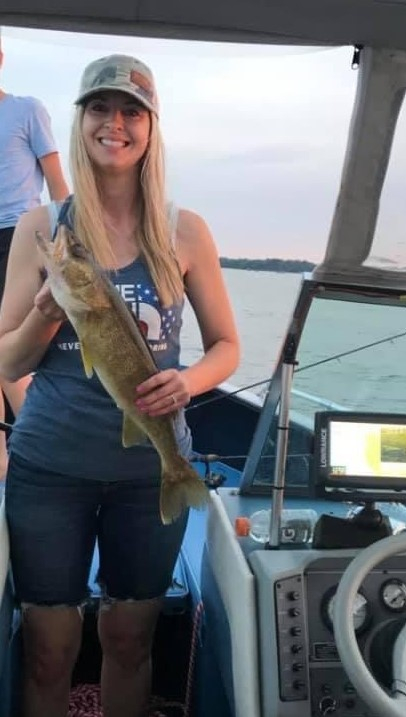
The Upper Mississippi River Basin Association is pleased to announce that Natalie Lenzen has started as Operations Manager. In this capacity, Natalie performs a wide range of administrative, personnel, meeting planning, communications, and office support functions in order to maximize and strengthen the internal capacity of the Association as a well-respected, high-impact organization.
Natalie’s previous experience includes serving as an accountant, project manager, executive assistant, personal banker, and even as a real estate agent early in her career. Natalie holds a Bachelors in Business Administration from Bemidji State University emphasizing on management.
Natalie enjoys cooking, traveling with her family, and ice fishing. She also spends a lot of free time four-wheeling, snowmobiling, and road tripping on the Spyder with her husband. Natalie has two daughters and a son as well as a Dogo Argentino named Duke.
Please join us in welcoming Natalie! Her contact information is nlenzen@umrba.org or 651-224-2880.
UMRBA Reviews its 2021 Accomplishments
Kudos to our partners and participants (state and federal agencies, individual and organizational stakeholders) and our remarkably productive staff for another great year. This “year-in-review” will highlight some of the substantial progress we made in 2021 and present a look forward to the work of 2022.
In 2021, the Upper Mississippi River Basin Association (UMRBA) celebrated 40 years of success. The Governors of Illinois, Iowa, Minnesota, Missouri, and Wisconsin formed UMRBA to foster and facilitate interstate water resource planning and cooperative action. Working together through the Association, the five state governments have advanced important joint priorities for the Upper Mississippi River System and have maintained an expectation of multi-purpose management for the river. It has been a remarkable forty-year journey.
This past year, 2021, has underscored the importance and quality of the Association’s work. Despite the challenges posed by the covid pandemic, UMRBA continued to move state priorities forward in 2021 by advocating on behalf of the five states, serving as a catalyst and convener, communicating about the river resources and ongoing investments, and developing information and tools to support decision making. UMRBA has maintained the Upper Mississippi River System’s national reputation and recognition as a priority resource.
Notable 2021 highlights:
- UMRBA’s Water Quality Executive Committee developed a draft 10-year water quality program plan, which offers specific needs and priorities for advancing interstate water quality management.
- UMRBA and its partners implemented an important water quality project known as “Monitoring for the Clean Water Act Reaches 8-9 Pilot of the Interstate Water Quality Monitoring Plan.”
- UMRBA published a final draft Keys to the River Report, which provides a vision for long term planning and identifies a suite of tools for enhancing resilience to floods, droughts, and sediment. This report was the result of three years of active collaboration among UMRBA partners and participants.
- UMRBA, in partnership with USACE, convened interdisciplinary experts and decision makers to reach consensus on an approach forward for implementing water level management. Products included a peer-reviewed synopsis of the federal and state agencies’ agreement and an update to the Navigation and Ecosystem Sustainability Program assessment of ecological benefits from managing water levels at various low-water depths during the growing season.
- The UMRBA Spills Group developed a draft five-year strategic plan, which establishes priorities for guiding the members’ collaborative work towards advancing the group’s mission: to enhance capabilities of all stakeholders tasked with managing incidents impacting the Upper Mississippi River and immediate tributaries through support of integrated planning, coordination, preparedness, and spill response.
- UMRBA developed a navigation assets inventory for the Upper Mississippi River System. It can be viewed at https://umrba.org/navigation/gis. It is an interactive map that features ports, terminals, boat accesses, and other navigation-related information. It allows users to search for intermodal access with a certain dock type or storage capacity.
- UMRBA developed a suite of out-of-basin water diversion scenario planning exercises to better understand 1) how their unique approaches and authorities to regulating water use may influence implementation of the Upper Mississippi River Basin Charter and 2) evaluate important contextual questions around the Charter’s provisions.
- UMRBA redesigned its website to be more effective in highlighting the Association’s positions and publications and ongoing work (see www.umrba.org)
A Look Ahead to 2022:
The future is full of promise and challenge. There is a greater need than ever for strong collaboration within a framework of partnership to maintain integrated, multipurpose management of the Upper Mississippi River System. We will need your continued engagement to be successful.
Multi-purpose management must be informed by solid ecological, economic, engineering, and social science. It must be founded on the commitment to include all the diverse voices within the Upper Mississippi River System in planning and implementing action.
Our collaboration with you in 2022 will include ensuring the states’ effective involvement in Upper Mississippi River Restoration (UMRR) program and Navigation and Ecosystem Sustainability Program (NESP) and advancing the 10-year water quality program plan, the five-year UMR spills plan, and the resilience planning actions. It also will include leveraging capacity and improving understanding among the diversity of people and organizations within the Upper Mississippi River floodplain and watershed.
In closing, let me once again offer my thanks and congratulations to our state and federal agency partners, our individual and organizational stakeholder participants, and our Association staff members for another great year. Also, a special word of thanks to Association Board Members, whose dedication and support are crucial to our success.
UMRBA looks forward to continuing to work on behalf of our five member states and the river.
UMRBA Joins Partners Advocating for Reforming the Corps' Project Partnership Agreements
UMRBA respectfully requests that Congress consider reforming the U.S. Army Corps of Engineers’ project partnership agreements (PPAs) in the Water Resources Development Act, eliminating a significant impediment to public-private partnerships in advancing important water resource projects. Namely, the impediments involve liability requirements that conflict with state constitutions and tort law and that are challenging for nonprofit entities and local governments to assume.
UMRBA also joined as a signatory in a multi-signatory letter organized by the Interstate Council on Water Policy with signatories by Association of Fish and Wildlife Agencies, Atlanta Regional Commission, Bayou Metro Water Management District, Delaware River Basin Commission, Great Lakes Commission, Interstate Commission on the Potomac River Basin, National Association of Flood and Stormwater Management Agencies, Susquehanna River Basin Commission, and The Nature Conservancy.
The letters can be found by clicking here.
UMRBA Submits USACE Funding, Policy Priorities in 2022
UMRBA conveys its priorities for the USACE’s spending priorities through the appropriations process and as authorized in the Infrastructure Investment and Jobs Act. Find the letter on UMRBA's website by clicking here.
UMRBA Calls For Full Federal Funding for Brandon Road
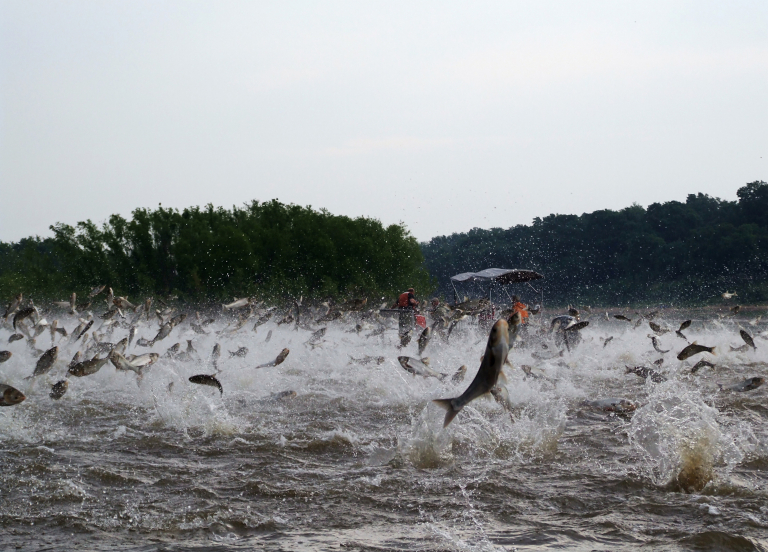
UMRBA provides support for the Great Lakes states’ request that the U.S. Congress authorize the Great Lakes and Mississippi River Interbasin Project, Brandon Road, including both structural and non-structural components, at full federal expense for construction, remaining design, and perpetual operations, maintenance, repair, rehabilitation, and replacement in the Water Resources Development Act (WRDA) 2022.
Find the letter on UMRBA's website by clicking here.
UMRBA Testifies On Climate Resilience Planning
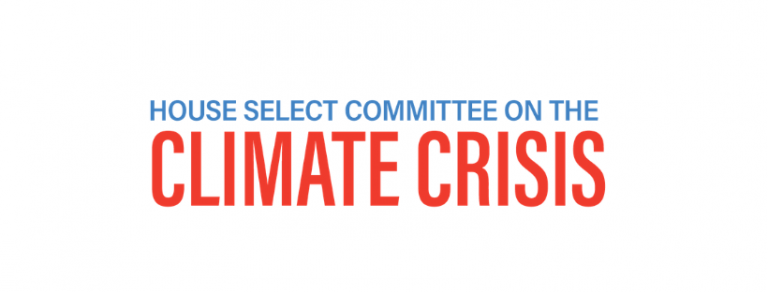
UMRBA shared how it is working in collaboration with its federal partners, local entities, and numerous stakeholders to develop and act on robust solutions for adapting to, and mitigating, the effects climate change, underscoring the importance of the:
- Upper Mississippi River Restoration program
- The Navigation and Ecosystem Sustainability Program
- The Gulf Hypoxic Action Plan, including the states' nutrient reduction strategies
- Long term flood, drought, and sediment resilience planning
UMRBA Submits WRDA 2020 Implementation Guidance Comments
Congress reinforces commitment to integrated, multipurpose management of the Upper Mississippi River
The passage of the 2020 Water Resources Development Act (WRDA) reinforced Congress’ commitment to integrated, multipurpose management on the Upper Mississippi River and water resources across the nation. In the same action, Congress supported the region’s goals for improving disaster preparedness, economic growth and resilience, and ecological health on the Upper Mississippi River. This includes:
- Substantially increasing the annual authorized appropriation for the Upper Mississippi River Restoration program
- Alleviating constraints to the Inland Waterways Trust Fund that will fund the Navigation and Ecosystem Sustainability Program (NESP)
- Removing the largest policy impediment to beneficial use of dredged material – i.e., modifying the Federal low-cost standard
- Authorizing the construction of GLRMIS construction for a total cost of $858 million as well as the Grand River Basin ecosystem restoration project in Iowa and Missouri and the Meramec River Basin ecosystem restoration project in Missouri
UMRBA offered the following specific comments to the U.S. Army Corps of Engineers as it develops guidance for implementing the provisions authorized in WRDA 2020:
Inland Waterways Trust Fund: The adjustment of the Inland Waterway Trust Fund cost share allocation to inland waterway lock construction and major rehabilitation projects will help ensure that the Upper Mississippi River and nation’s inland waterways are able to reliably and efficiently serve an integral role in domestic and international transportation. But, federal investment in the nation’s waterways infrastructure must be equitable. There is dismaying discrepancy between the Upper Mississippi River System’s contributions to the Inland Waterways Trust Fund and the return investment in the river’s infrastructure. UMRBA respectfully requests that the Administration place a higher priority on financing the Navigation and Ecosystem Sustainability Program for the Upper Mississippi River System.
Project partnership agreements: Implementing the solutions that involve the states or other nonfederal entities serving as cost-share sponsors is impeded, or are dramatically slowed, by the terms required in the cost-share project partnership agreements (PPAs). UMRBA encourages the Administration to participate actively with Congress, UMRBA, and other nonfederal sponsors to seek a legislative solution to shared liability and respectfully request that the U.S. Army Corps of Engineers provide a clear termination date for the OMRR&R responsibilities. Section 143 of WRDA 2020 directs the Corps to include a brief description and estimation of the anticipated OMRR&R costs for nonfederal sponsors in the project partnership agreements. UMRBA respectfully requests that the provision also include a defined end-term based on the expected useful life of the project’s construction features – i.e., match the 50-year project design life.
In addition, UMRBA respectfully suggests that a provision be added providing greater specificity regarding adaptive management to address risk and uncertainty with respect to achieving project outcomes as well as the need and ability to perform OMRR&R obligations dependent on whether the project features perform as intended.
Beneficial Use of Dredged Material: Congress’ change to the Federal standard calculation provides tremendous opportunity – not only for the Upper Mississippi River but for the coasts, Great Lakes, and rivers across the country. Implementation guidance is particularly important to ensuring that beneficial use can play a significant role in the river’s long term resilience to sedimentation as well as in advancing integrated river management. UMRBA respectfully requests that a representative team of interdisciplinary and interagency experts from the Upper Mississippi River and other regions across the country serve on a team to consider implementation guidance. UMRBA would welcome the opportunity to participate in such a dialogue.
Given the numerous project types and unique ecological and social factors throughout the country, UMRBA encourages the Corps to consider how to balance the need for long term flexibility with the necessary direction that Districts will require. UMRBA understands that the policies related to beneficial use are complex, including methods for calculating environmental and economic benefits and efficiencies. In the letter, UMRBA provides a few observations of beneficial use limitations beyond the low-cost Federal standard.
Floodplain Resilience Planning: UMRBA is pleased by Congress’ support for the Corps’ Section 729 planning authority to advance resilience planning on the Upper Mississippi River System. UMRBA would be the cost-share sponsor of the Section 729 study as directed by Congress in Section 214 of WRDA 2020. UMRBA is interested in using the planning authority to develop integrated, systemic plans to managing floods, drought, and sediment in the Upper Mississippi River System floodplain. We believe that it will be important to consider the changing weather, landscape, hydrology, and geomorphology as well as the region’s economic, social, and ecological values when advancing each of the following specific objectives:
- Develop an integrated, comprehensive, and systems-based plan to minimize the threat to health and safety resulting from flooding by using structural and nonstructural floodplain management measures
- Develop new, or renew existing, comprehensive long-term channel management plans that are sustainable, cost-effective, and ecologically sensitive
- Develop mitigation strategies for multi-year drought events that would increase the resilience of communities and economies adjacent to, or dependent on, the Upper Mississippi and Illinois Rivers nt in the Upper Mississippi River System floodplain.
UMRBA Launches New Website
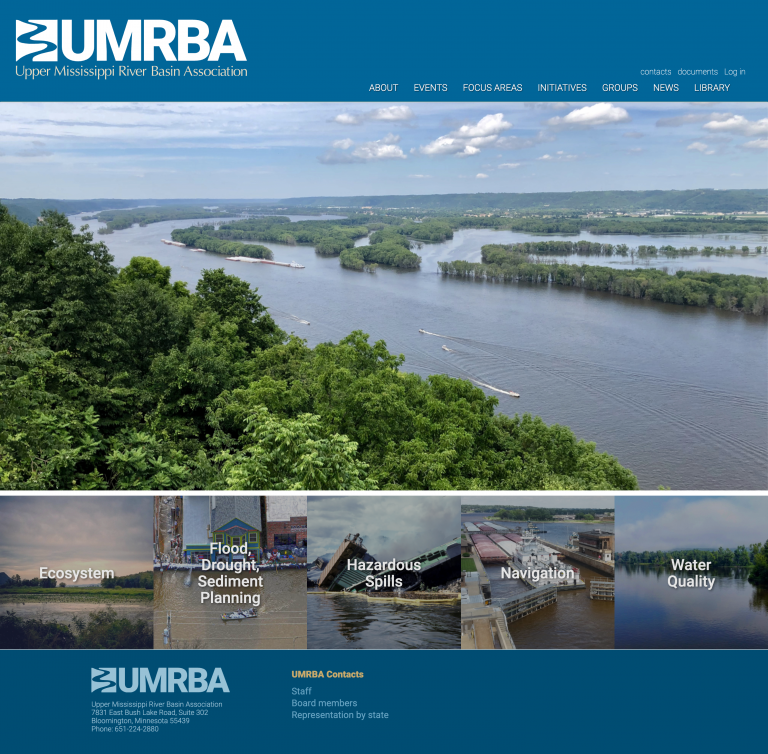
UMRBA is excited to launch our new web presence. We hope you will have a good experience, finding information and learning about the work we and our partners are doing to protect and improve the many river uses.
We will continue to expand website content, particularly with information about the river ecosystem, economy, and people who live along the river, and work to improve it.
Our primary goal was to create a more accessible, useful resource for you to find information on the river, the ongoing and historic programs, and projects, and UMRBA's current events and upcoming meetings.
Please contact staff with any questions or suggestions.
